The Ministry of Defence has confirmed that the Fleet Solid Support (FSS) ship project remains on schedule, with design work progressing as planned.
In response to a written question from Lord West of Spithead, Lord Coaker, Minister of State for Defence, provided an update on the FSS programme, stating:
“The Fleet Solid Support (FSSS) ship project is currently in the design phase, with design work on schedule, and its successful delivery remains a priority. Production of the first FSSS ship is expected to begin in 2025 and to enter service by 2031, after first of class trials and equipment fits. All three ships are expected to be in service by 2032, following equipment fits and trials.â€
Lord Coaker confirmed that the timeline for their development is on track. The FSS ships, which will support the Royal Navy by resupplying vessels at sea, are designed with a focus on energy efficiency and environmental sustainability.
Financial Uncertainty at Harland & Wolff
In his response, Lord Coaker also addressed the ongoing financial challenges facing Harland & Wolff, one of the key shipyards involved in the construction of the FSS ships. He stated:
“Following a review of Harland and Wolff’s financial situation, the Government is clear that the market is best placed to address the challenges the company is facing. We continue to work extensively with all parties to find an outcome for the company that continues to deliver shipbuilding and manufacturing in the UK.â€
Readers will know that the plan is for blocks of the FSS ships to be built across several shipyards, including Harland & Wolff’s Belfast yard, Appledore in Devon, and Navantia’s shipyard in Spain. Assembly and integration of the vessels is expected to take place in Belfast.
New ships still to be built in Belfast under ‘current plans’
However, with Harland & Wolff having faced administration in 2024, concerns have been raised about the shipyard’s ability to meet commitments under the FSS contract. The Government has expressed a clear stance that “the market is best placed to address these challenges,” continuing efforts to ensure the UK can maintain its shipbuilding capabilities despite these financial difficulties.
Importance of Fleet Solid Support Ships
The Fleet Solid Support ships will provide crucial logistical support to the Royal Navy, ensuring that supplies, munitions, and provisions can be delivered to naval vessels while they are at sea. Each ship will feature a core crew of 101 personnel, with the capacity to support an additional 80 individuals when needed, such as during helicopter operations or other roles.
These vessels, designed with the goal of minimising carbon emissions, will incorporate energy-efficient technologies and are adaptable for future low-carbon energy sources.


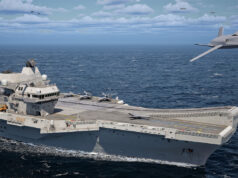

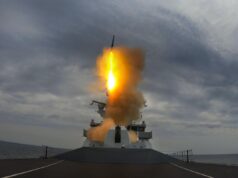
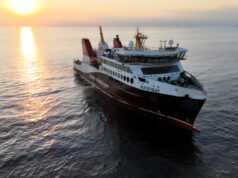
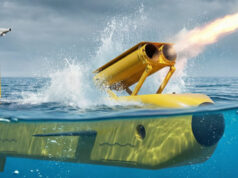
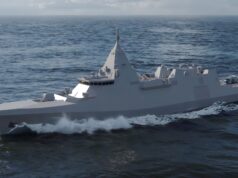
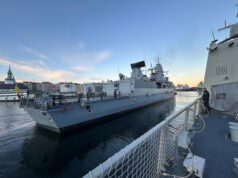
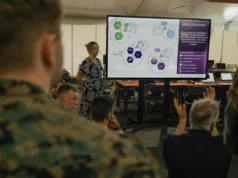
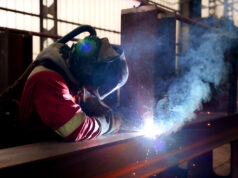
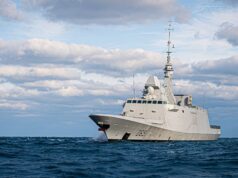

So low carbon design,very goodðŸ‘
either nuke powered or back to galley slaves then😉
Or sails.
No the most fuel efficient engines avalible
Point of order! After 2030 I can’t buy a carbon fuelled car so why can the govt put those engines in ships😂
It does not pay road tax on RFA ships.
Personally I’m not too worried about the RN carbon footprint.
I’m rather more interested in the ships existing with crews.
As long as this doesn’t mirror the Ferguson fiasco which is still running with parts tendon from #2 to try and make #1 work – couldn’t make it up.
Poster child for how not to do civilian shipbuilding.
Unless Navantia takeover Ferguson Marine part 2 is exactly what you will have. Even if they do it probably won’t work out but atleast Navantia will have to cover the cost.
This was all planned by Navantia from the start and the government was complicit. How could you magically reactivate a yard that hadn’t built ships for twenty years to build three complex ships at a price than no existing British ship yards could match.
Just as with the Scottish government at Ferguson there is no one in the UK government who has a remit or experience in ship building. Nationalising the yard would involve bringing in outside “consultants†who would charge a fortune and also be close to useless.
If you bring in an existing ship builder like Babcock or BAE then all your doing is putting at financial risk one of the few British shipyards we still have or your just writing a blank check to BAE or Babcock. Remember neither could win this contract at the price set so how could they construct on a fixed price.
It’s a Navantia take over or a Spanish build or the contract falls through and we go another 5 years while we re bid and give it to South Korea like we should have done in the first place.
Actually with BMT doing the design maybe we should just pull the plug and give it to South Korea.
South Korea wants nothing to do with UK orders after the last fiasco.
They’re the ones who screwed it up?
Agree re SK. They’d be in service by now.
I agree with most of what you state but the government wasn’t complicit in the current out come. Yes there was decit but that goes back to verbal promises on a loan guarantee ghat was never given. BAe and Babcock and the unions are complicit though their cartel tried to politicise the deal to ensure they won it at a much higher price. BAe and Babcock should have never been on the same team neither Labour or Tories protested this at the, totally shocking making them both complicit in the direction this went.
But correct we should bought Korea saved 500m and used that money to extend the dry dock in Portsmouth which strategical would have provided the second large dry dock
I think Carbon footprint in terms of defence is most helpful because it’s directly proportional to our fuel use. If we’re using fuel more efficiently, we’re using less fuel, we’re less logistically constrained, we can fight better. The environmental benefits are welcomed, but secondary.
Just need to get some crew now. Astonishing how long this dispute for a small number of crew has gone on. billions in ships sitting idle over a dispute that would cost a pittance to resolve absolutely nuts
Absolutely. Questions need to be asked of the politicians\officials dealing with this. There is an obvious competency question of someone wasting pounds in order to save pennies.
Didn’t you realize that’s the main criteria for anyone becoming a politician regardless the party
The last government had no central control and ministers largely just went around making stuff up and doing things on the fly with no idea how things woukd be paid for longer term.
Now faced with two bids, one properly funded from British yards that was over price and one the looked like the magical option that was not only on price but would magically re open H&W if you don’t ask too many questions and get the treasury to under write a £200 million loan to a company in debt up to its eye balls that can’t put up any collateral which do you choose?
If your Ben Wallace you choose the later one and either hoped everything would some how turn out fine or knew full well the ships would be built in Spain but knew it got him out of a difficult political spot just at the exact same time a Tory party leadership contest was under way in 2022.
“These vessels, designed with the goal of minimising carbon emissions, will incorporate energy-efficient technologies and are adaptable for future low-carbon energy sources.”
I’m soooooo pleased about this…now…Will they be any good?